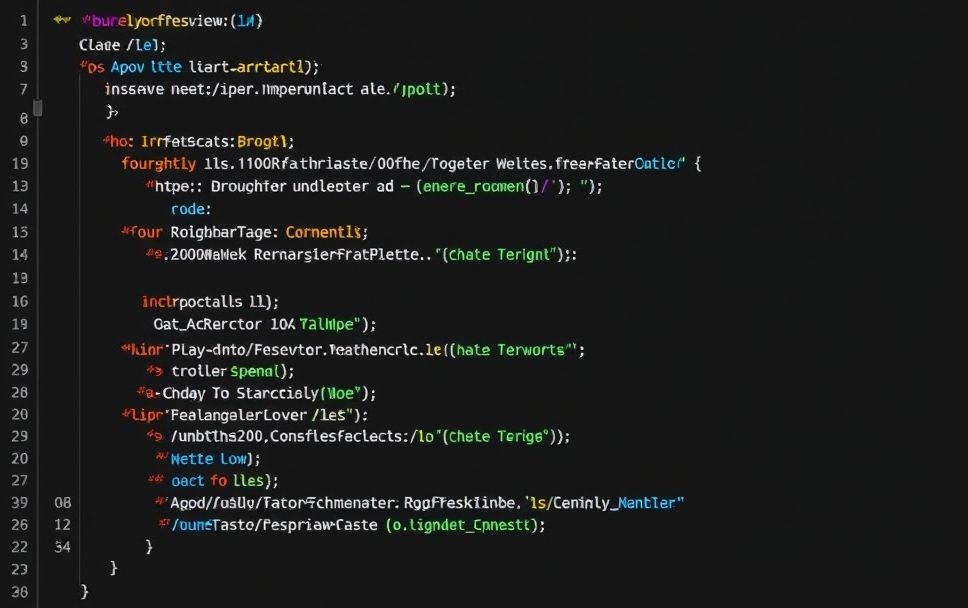What are Code Reviews?
Code reviews are a systematic examination of computer source code, intended to identify mistakes overlooked in the initial development phase, improving software quality. They involve one or more developers examining another’s code to ensure it meets the project’s standards and requirements. Beyond just finding bugs, code reviews foster collaboration, enhance knowledge sharing, and promote adherence to best practices.
The Importance of Code Reviews in Software Development
Code reviews play a critical role in the software development lifecycle. They not only help in catching defects early, but they also serve multiple purposes:
- Quality Assurance: Ensuring code quality by identifying issues before deployment.
- Knowledge Sharing: Facilitating team learning by exposing developers to different coding styles and techniques.
- Consistency: Maintaining coding standards and practices throughout the codebase.
- Team Collaboration: Encouraging communication among team members, which can enhance team dynamics and morale.
Types of Code Reviews
There are various methods to conduct code reviews, each with its unique advantages:
- Peer Reviews: Involving team members to review each other’s work. This can be informal or structured.
- Pair Programming: Two developers work together at one workstation, reviewing code in real-time.
- Tool-assisted Reviews: Utilizing software tools that facilitate asynchronous reviews, allowing for comments and discussions on specific lines of code.
For example, GitHub offers a pull request feature where team members can comment on specific lines of code, making it easier to manage feedback.
Best Practices for Conducting Effective Code Reviews
To maximize the benefits of code reviews, consider the following best practices:
- Limit the Scope: Review small, manageable chunks of code rather than overwhelming peers with large changes.
- Set Clear Objectives: Define what the review should achieve, including specific aspects like functionality, style, and performance.
- Encourage Constructive Feedback: Focus on the code, not the coder. Promote a culture where feedback is viewed as an opportunity to grow.
- Utilize Checklists: Create a checklist to ensure that key aspects are reviewed consistently, such as code style, performance, and security vulnerabilities.
For instance, a checklist might include items like ensuring that variable names are descriptive and that the code adheres to the project’s style guide.
Applications of Code Reviews in Real-World Scenarios
Code reviews are applicable across various stages of the development process. Here are some practical applications:
- Before Merging: Always perform code reviews before merging changes into the main branch to catch issues early.
- Onboarding New Developers: Use code reviews as a tool for onboarding new team members, helping them understand the codebase and team standards.
- Refactoring: When making significant changes to existing code, a review can ensure that modifications do not introduce new bugs.
For example, when a new developer joins a team, conducting code reviews on their contributions can help them adapt to the team’s coding style and practices more quickly.
Conclusion: The Ongoing Value of Code Reviews
In summary, code reviews are a fundamental practice in software development that enhances code quality and fosters a collaborative team environment. By implementing effective code review processes, teams can not only identify and fix bugs but also promote learning and growth among team members. Whether you are a seasoned developer or just starting, prioritizing code reviews can lead to better software and a stronger team.
As you reflect on the importance of code reviews, consider how you can incorporate them into your workflow. What strategies can you implement to ensure that your code reviews are effective and beneficial for your team?
Related Concepts
- Version Control: A system that records changes to files over time, enabling multiple developers to collaborate on the same project.
- Continuous Integration: A practice that involves automatically testing and merging code changes to detect issues early.
- Agile Development: A methodology that emphasizes iterative development, where code reviews can be integrated into sprints.









